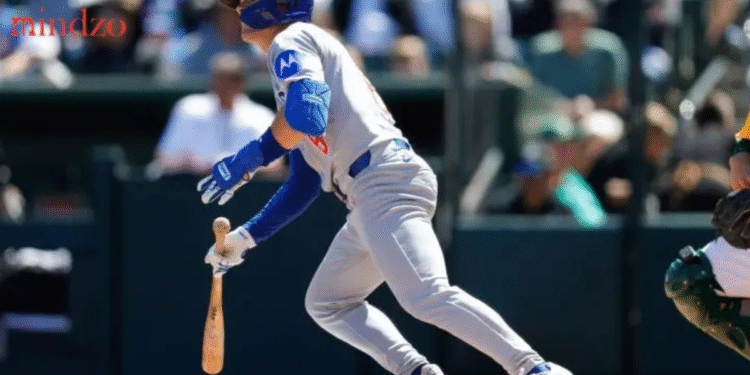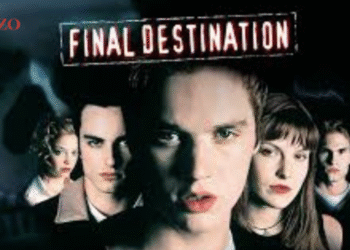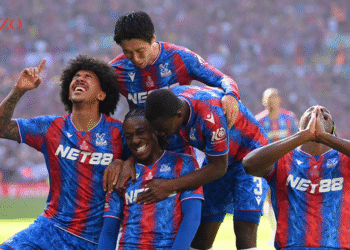The Rivalry’s History
The White Sox were established in 1901, and the Cubs in 1876. In a literal sense, both teams came to symbolize opposing parts of the city. That disparity eventually developed into a fierce rivalry. Identity was more important than simply who had superior players. More than a century ago, this baseball quarrel began to simmer, and it continues to do so today. Chicago’s Ultimate Baseball Rivalry
The North and South Sides
“You can tell a lot about someone by which Chicago baseball team they support,” has anyone ever said? It’s accurate. White Sox supporters are proud to represent the gritty, working-class South Side, while Cubs supporters are mostly from the more wealthy North Side communities. This division is a way of life rather than merely a geographical one.
Guaranteed Rate Field vs. Wrigley Field
The Cubs’ home field, Wrigley Field, is a baseball cathedral. It is the second-oldest ballpark in Major League Baseball, having been constructed in 1914. The rooftop seating and the ivy-covered walls provide a sense of nostalgia.
Rate Promise Despite being more recent, Field is a contemporary stadium with larger seats, improved parking, and cutting-edge features. Fans of the Sox may joke that Cubs fans have greater sightlines and better beer selections.
Which is superior, then? Whether you value comfort or history will determine that.
Key Events in the History of the White Sox vs. Cubs
Who could forget the altercation at home plate in 2006 between Michael Barrett and A.J. Pierzynski? Or the 2008 season, when they faced off with both teams in the lead? Fans’ memories are etched with these moments.
Every Crosstown Classic offers the possibility of creating a brand-new memory, which may be both exciting and devastating.
Traditions and Fan Culture
Regardless of the season, Cubs supporters swarm Wrigleyville pubs and chant “Go Cubs Go” after victories. Even in losing seasons, White Sox supporters are renowned for their devotion. They proudly don black jerseys while blasting Journey’s “Don’t Stop Believin’.”
Every fan base is like a distinct Chicago flavor—different vibe, same city.
Legendary Members of Both Teams
Names like Kris Bryant, Ryne Sandberg, and Ernie Banks are indelible to the Cubs. Ernie Banks, aka “Mr. Cub,” is still regarded as one of the most adored characters in Major League Baseball history.
Legends like Harold Baines, Paul Konerko, and Frank Thomas are part of the White Sox. In the 1990s, Frank Thomas—also known as “The Big Hurt”—was a formidable force.
These names fill hearts, not just statistics sheets.
Interleague Competition: The Crosstown Icon
The Cubs and White Sox have been playing one other frequently since 1997 in what is known as the Crosstown Classic. It’s a civil war, not just a game. Attendees take days off from work. Families split up. Local pubs throw viewing parties as if it were a national holiday.
Hype and Media Coverage
Local news stations go ablaze when these two teams are playing. The sports radio is buzzing. Social media takes off. Arguments will be found in comment sections, and memes will be spreading like wildfire. Fueling fan excitement like gasoline on a blaze, the hype machine is operating at full capacity.
The Effect on the Identity of Chicago
Without a doubt, Chicago is a sports town. But few other towns have the personality that White Sox vs. Cubs brings. It’s similar to having two siblings who are always striving to outdo one another. Whether amicable or antagonistic, the rivalry provides flavor to city life and forges special bonds amongst supporters.
Statistics and Records of Wins and Losses
The White Sox broke their own curse by winning a title in 2005, although the Cubs have had greater playoff success recently, including their historic World Series victory in 2016.
Win-loss records fluctuate during head-to-head interleague competition. One decade may be led by the Cubs, the next by the Sox. When one goes up, the other pulls them back down, much like a seesaw.
Economic Effects of the Competition
This is serious business, not just a game. Local businesses benefit from the large audiences that attend games between the two teams. There is an increase in bars, eateries, shops, and ridesharing services.
It is anticipated that the Crosstown Classic generates millions of dollars each year. This rivalry, in a sense, drives the local economy.
The Significance of Community and Family Loyalty
Cubs and Sox supporters share a home in some households. Holidays may be awkward. Your favorite team is frequently inherited like a family heritage.
Allegiances are also influenced by neighborhoods. Did you grow up in Bridgeport? You’re probably a Sox. grew up in Lakeview? Cubs, most likely. It’s not just a preference—it’s almost destiny.
Current Rivalry: Is It Still Existing?
Don’t be deceived by the claims that the rivalry has cooled in recent years. Particularly when both sides are competitive, the fire still burns brightly. These days, YouTube channels, podcasts, and social media keep the discussion going all the time.
Although bar stools have given way to comment threads as the battleground, the conflict is still ongoing.
Notable Battles and Debates
There have been altercations in the fans, contentious calls, and even media disputes in addition to the Barrett-Pierzynski altercation. These heighten the drama and intensity. There’s always a little animosity underneath any healthy competition.
Conclusion
Ultimately, White Sox vs. Cubs is a Chicago institution that transcends baseball. Two teams, two sections of a city, and many memories are all part of this tale. Regardless of whether you wear black with pride or bleed blue, one thing is certain: Chicago is fortunate to have a rivalry this deep, intense, and long-lasting.
FAQs
What makes the Cubs and White Sox rivals?
due to their long history of rivalry and cultural differences, as well as the fact that they represent various regions of Chicago.
Which team—the White Sox or the Cubs—has won more titles?
Right now, the Cubs and White Sox are tied for the most World Series victories with three each.
The Crosstown Classic: What is it?
The Chicago Cubs and the Chicago White Sox play their interleague games under this moniker.
Which stadium—Guaranteed Rate Field or Wrigley Field—is superior?
Guaranteed Rate is more contemporary and cozy, while Wrigley is more iconic and historic. Depending on your preferences, yes.




















